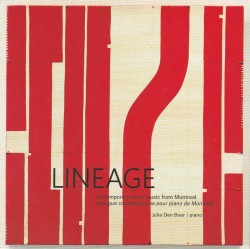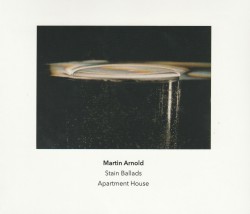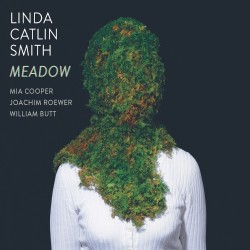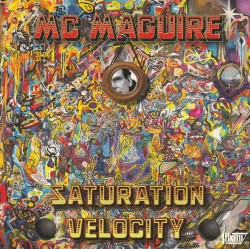Lineage - Julia Den Boer
 Lineage
Lineage
Julia Den Boer
Redshift Records TK476 (redshiftrecords.org)
French-American pianist Julia Den Boer confidently delivers Lineage, an album of contemporary solo piano music with ties to Montreal. Den Boer’s impressive technical prowess is brilliantly revealed from several angles as each piece on this recording presents high degrees of challenging material.
First, Chris Paul Harman’s 371 Chorales (2016) is a wonderful gem full of shimmering charm and glistening high-register counterpoint – a delightful miniature that expands upon the composer’s predilection toward recontextualizing old material. Brian Cherney’s multi-movement Tombeau (1996) is a mature work of a modernist approach that sends the listener through a gamut of contrasting expressive landscapes – terrain that Den Boer handles with world-class musicianship. The serendipitous monophony of Matthew Ricketts’ Melodia (2017) is a deeply original work that relies on decidedly exposed lines. This music allows the piano to sing wonderfully in the hands of Den Boer, and is a refreshing reminder that newly composed piano works do not require a maximal approach to produce successful results.
Lastly, Reiko Yamada’s Cloud Sketches (2010) is a substantial work comprised of scalar flourishes and prickly interruptions that evoke a series of conversations and contemplative interludes. With such contrasting works, each demanding in wildly different ways, this release is a strong statement showing Den Boer’s importance as a contemporary music interpreter.







